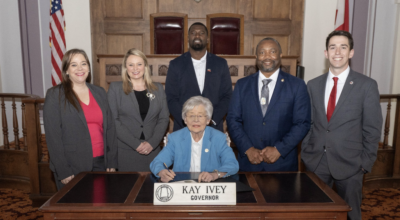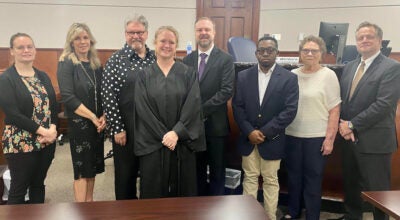What exactly does Alabama’s stay-at-home order call for?
Published 3:49 pm Monday, April 6, 2020
|
Getting your Trinity Audio player ready...
|
Gov. Kay Ivey announced a statewide stay-at-home order to slow the spread of COVID-19, but questions remain about what is allowed under the order.
The order, which went into effect at 5 p.m. on Saturday, April 4, details a list of “essential activities” and “essential businesses and operations.” Outside of those umbrellas, people are required by law to remain in their place of residence, and even when they leave their homes for one of the given purposes, to always maintain a 6-foot distance from other people.
Essential activities include:
- Obtaining necessary supplies. These include items for a person, other household members and even pets needed to “maintain a person’s daily routine,” or for safety or sanitation purposes. Also included are supplies needed to work from home, prescriptions, and materials for distance learning or other education-related purposes.
- Obtaining or providing necessary services. Examples include dental, medical or surgical procedures, and automobile repair services.
- Attending religious services. These can include worship services, weddings or funerals, but participants in these instances must number fewer than 10 and maintain a 6-foot distance from each other. Drive-in worship services are allowed as long as participants remain in their vehicles and stay 6 feet away from each other.
- Taking care of others. Residents are allowed to continue caring for a family member, friend or even a pet in another household. Also covered under this category is donating blood and transporting someone else for medical care.
- Working. Essential businesses and operations are allowed to continue, also including activities that enable people to work or shop remotely from their residences, or to buy products through drive-by, curbside or door-to-door delivery.
- Engaging in outdoor activity. As with other exceptions to the order, people must maintain a 6-foot distance from others.
- Seeking shelter, as in one’s residence is unsafe or at imminent risk of becoming unsafe. People are also covered if they are seeking help from a provider of basic necessities, such as a food pantry.
- Traveling as required by law (such as a court order, including the transportation of children required by a custody agreement).
- Seeing family members. Again, 6 feet of separation must be maintained.
Ivey’s office also released answers to “frequently asked questions,” and the information stressed relying on common sense when deciding whether to do something.
“Always ask yourself whether going somewhere, even for ‘necessary’ supplies and services, would increase the risk of COVID-19 transmission,” the release states. “If you can delay, delay.”
The essential businesses and operations recognized by the order are:
- Government operations
- Health-care providers and caregivers
- Infrastructure operations
- Manufacturing facilities
- Agricultural operations and farms
- Essential retailers (supermarkets, food and beverage stores, office supply stores, convenience stores, pharmacies, building materials stores, gun stores, bicycle and boat supply and repair stores)
- Restaurants and bars
- Essential personal services (trash collection, mail, home repair, animal shelters, dry cleaners, childcare facilities, funeral)
- Media operations
- Education operations
- Financial services
- Professional services (legal services, accounting, insurance, real estate)
- Providers of basic necessities to economically disadvantaged populations (businesses, religious, food banks, homeless shelters)
- Construction and construction-related services
- Essential public services
- Military or defense operations
- Essential services (transportation, technology support)
- Religious entities
- Federally designated critical infrastructure
For more details about the stay-at-home order and other resources related to the COVID-19 pandemic, visit AltogetherAlabama.org, CDC.gov, Coronavirus.gov and AlabamaPublicHealth.gov.










